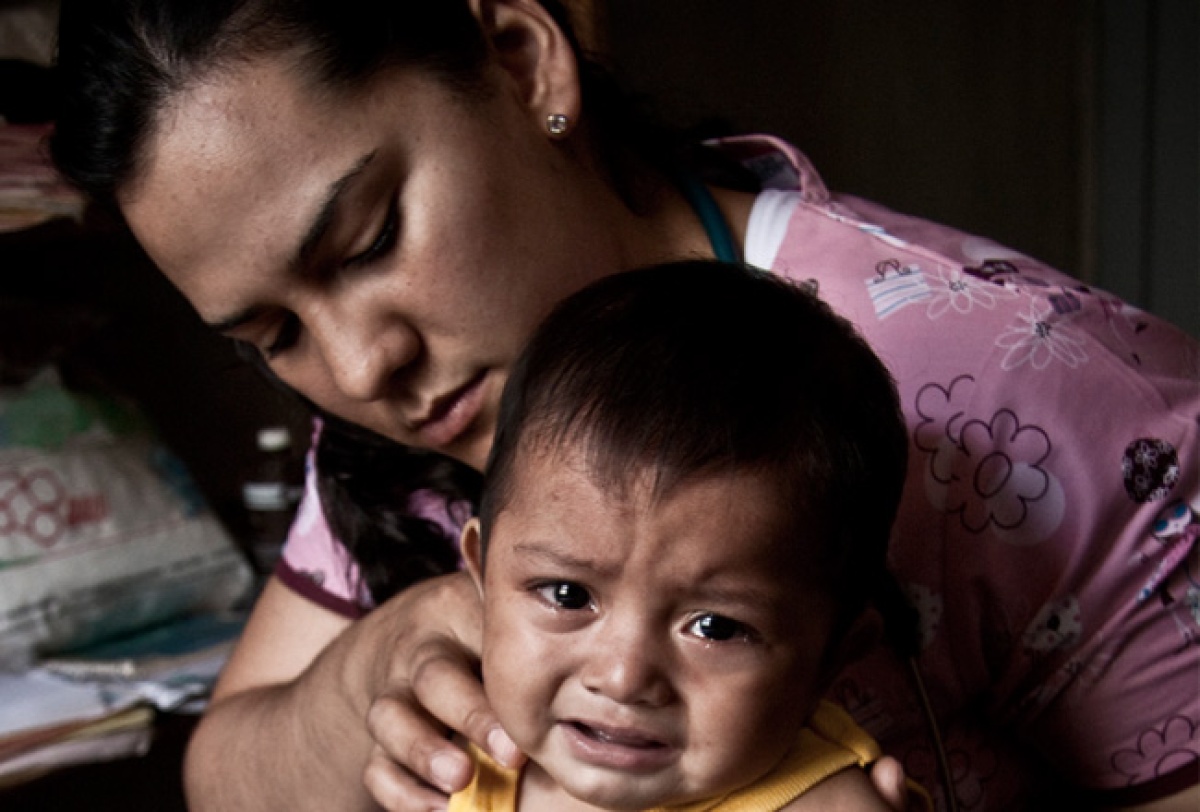Delivering Babies—and Trust—in the Mountains of Mexico
Posted on May 17, 2013

When Dr. Gaby Chalup arrived in the community of Plan de la Libertad, in Chiapas, Mexico, she didn’t expect to be delivering babies. “In theory we are not supposed to attend births in our communities,” says Chalup, 28, one of eight Mexican social service year physicians, called pasantes, working with Compañeros En Salud, PIH’s Mexican sister organization. Each pasante spends a year working in one of the remote, under-resourced government clinics that are scattered across the Sierra Madre Mountains.
Plan de la Libertad is a three-hour trek from the nearest hospital, Chalup says, noting that the 1,400-person community never had a resident doctor before her arrival. While it would take time for Chalup to earn the trust of the community, it didn’t take long before she was thrust into practice.
On her third day on the job, she found herself in a nearby adobe house where a 17-year-old lay on the bed, exhausted and in pain from a labor that had begun seven hours prior. Chalup had seen the young woman two days earlier and referred her to the hospital, but the family opted for a local midwife and home delivery. After assessing the situation, Chalup decided that the girl now needed to get to the hospital.
But 50 minutes later, and still many miles from a hospital, Chalup helped the woman deliver her baby in the bed of a pickup truck. It wouldn’t be the last delivery, or the most challenging.
A few months later, Chalup was working in the clinic when a family came in seeking help for their daughter. The woman’s water had broken three days prior, yet there was no dilation. Again, Chalup knew that getting the patient to the hospital was necessary so that labor could be induced, but some of the patient’s family members insisted that the baby be born in the village, “like all the rest.” Chalup did her best to explain the complications and persuade the family to go to the hospital.
“With all of the patients I have seen in similar situations, the babies have not come out on their own.” Chalup told the family.
At that moment, the woman’s father arrived and listened intently to Chalup’s advice. Soon after, Chalup accompanied the patient to the hospital where labor was induced and a healthy baby was born.
In her nine months working in Plan de la Libertad, she’s helped deliver three babies—“almost four!” she says. “I just have this luck.” Unlike the first two, the most recent delivery was planned and didn’t involve pickup trucks or familial negotiations. “I accompanied her from the diagnosis when I told her, ‘Look, you’ve got two little lines. You’re going to be a mom!’ up to when they said to me, ‘Doctora, when the baby comes, we want you to be there during the labor.’”
Chalup happily agreed, and after completing the requisite paperwork, packed up a little “birth” backpack and awaited the call. A few days later, at 5 a.m., Chalup heard a shout from outside her window: “Doctora Gaby!” Chalup shot up, grabbed her backpack, and ran out the door, shouting, “I’m coming!” Forty minutes after arriving at the patient’s house, she helped deliver another healthy baby.
That request will certainly not be the last. Slowly—with each birth, with each checkup, with each vaccination—Chalup is gaining the trust of a community that has long struggled to access quality medical care. Though she didn’t anticipate obstetrics featuring prominently during her time in Chiapas, Chalup is delighted with the experience. When asked about her hopes for her remaining time in Plan de la Libertad, Chalup responded, “I hope there will be more births.”
Emma Goodstein has been collaborating with the PIH team in Chiapas, Mexico since June 2012. Originally from Portland, Oregon, she graduated from Wesleyan University in 2010 with a degree in history and has since worked in various positions in the health care field in Portland and New York City. She will be entering Emory School of Medicine this fall.

